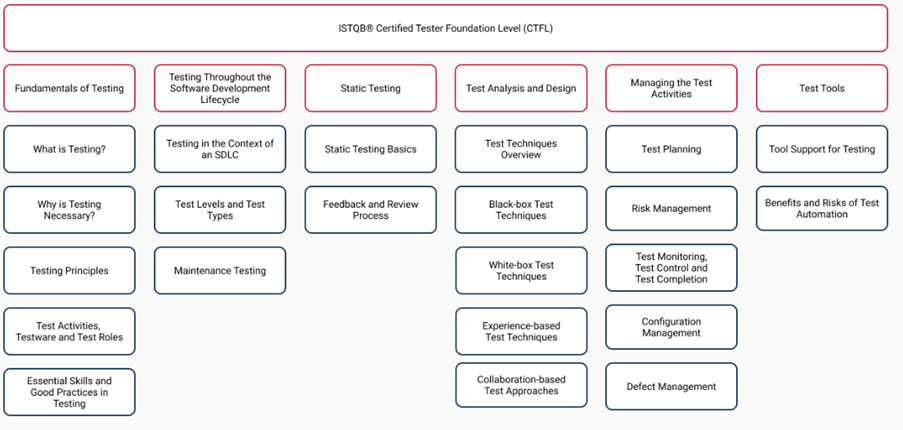This syllabus forms the basis for the International Software Testing Qualification at the Foundation Level.
Its content is not a description of the entire knowledge area of software testing.

Exam Information
- The examination consists of a one-hour exam with 40 multiple choice questions.
- It will be a 'closed book' examination i.e. no notes or books will be allowed.
- Duration of 60 minutes (or 75 minutes for candidates taking examinations that are not in their native language)
- No study material or electronic devices (including mobile phones) may be used during the examination Candidates are allowed to use simple non-programmable calculators (to be provided by the candidate)
- An official translation of terms (not their definitions) from the ISTQB® Glossary to the local language is allowed. Candidates taking exams that are not in their native language may use a paper-based translation dictionary.
- The pass mark is 65% (26 out of 40).
More Information
Holders of this certification will be eligible to proceed to the next stage of the Core stream and take Test Analyst, Technical Test Analyst, or Test Management Advanced Level certifications. They may also choose to follow the Agile or Specialist streams to develop specific skills.


























Daimler Trucks & Buses
Rated the training 5 stars.